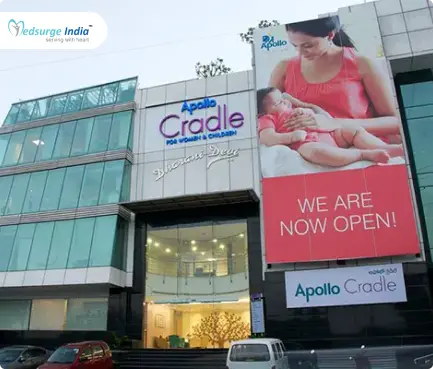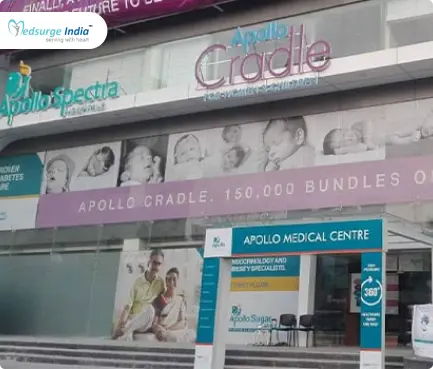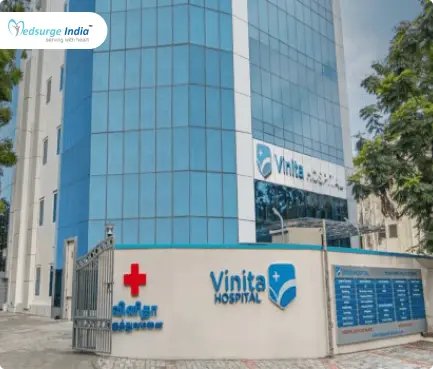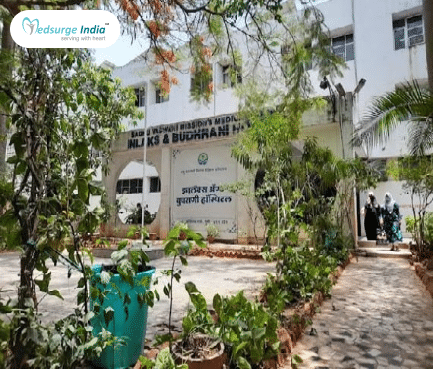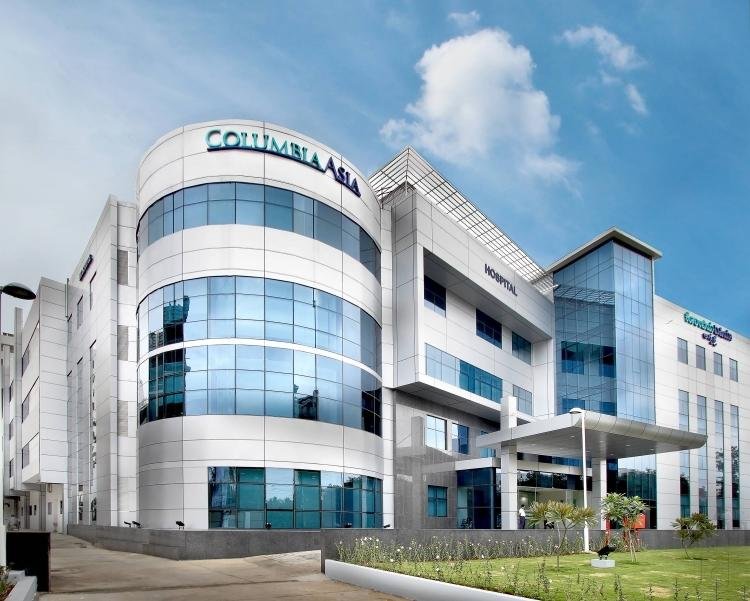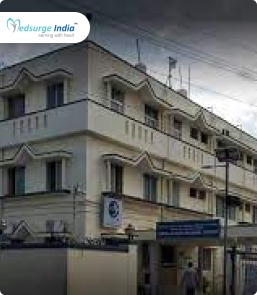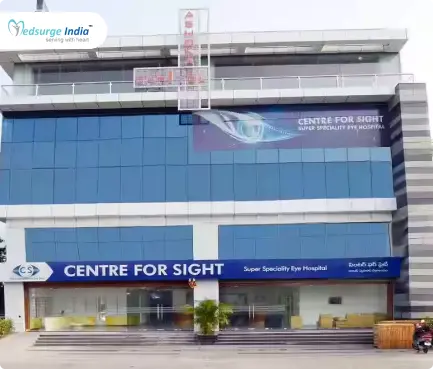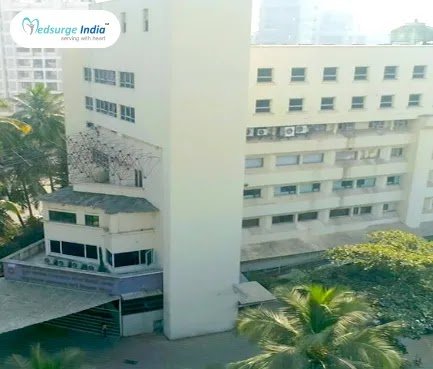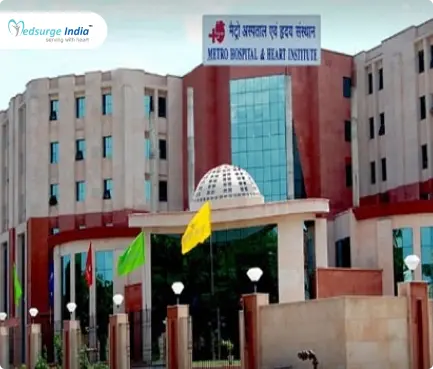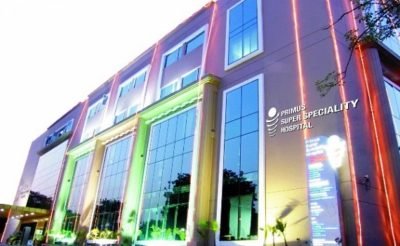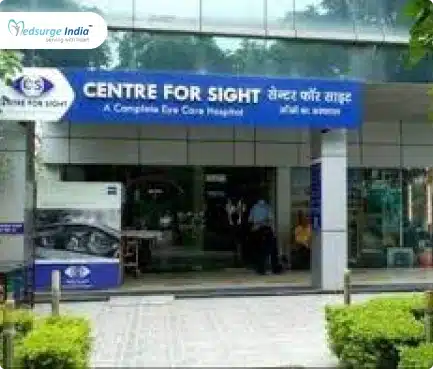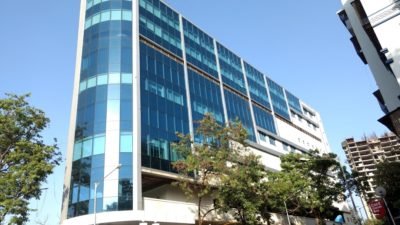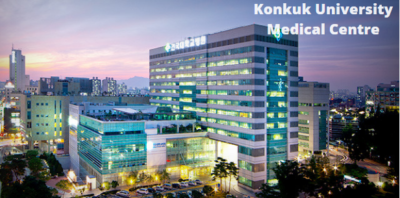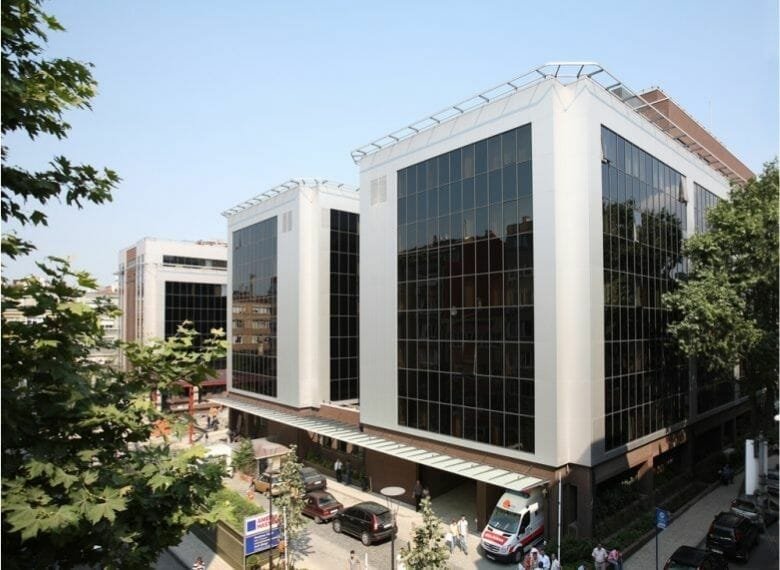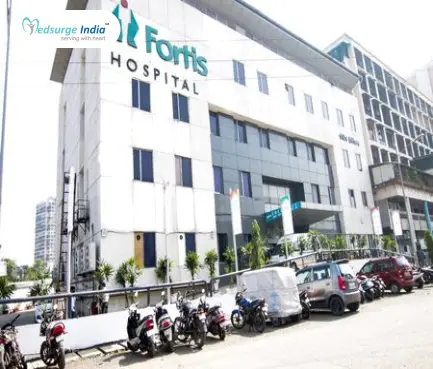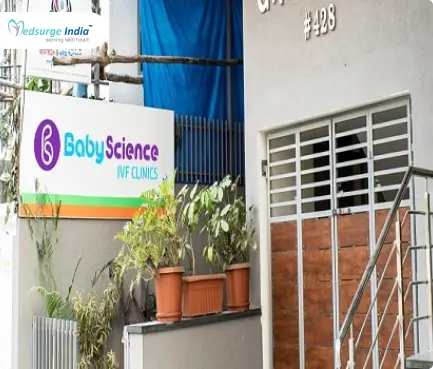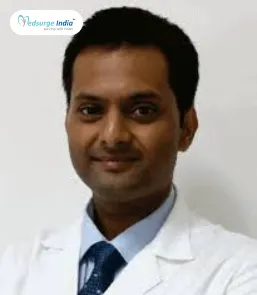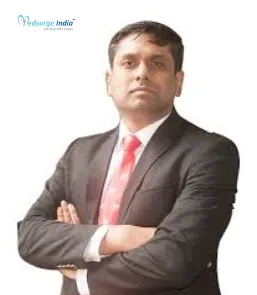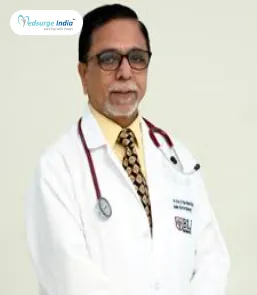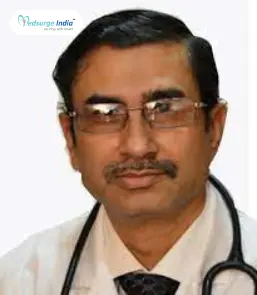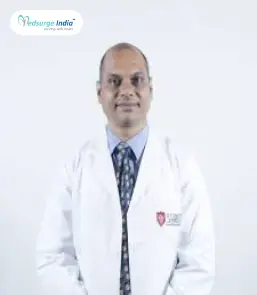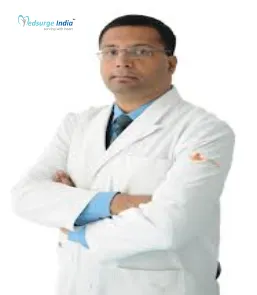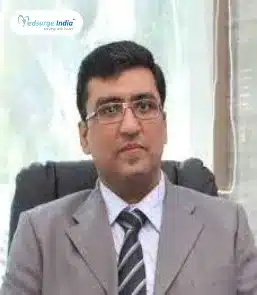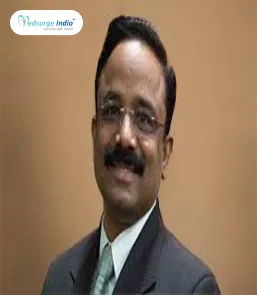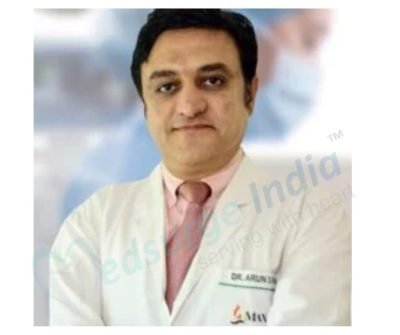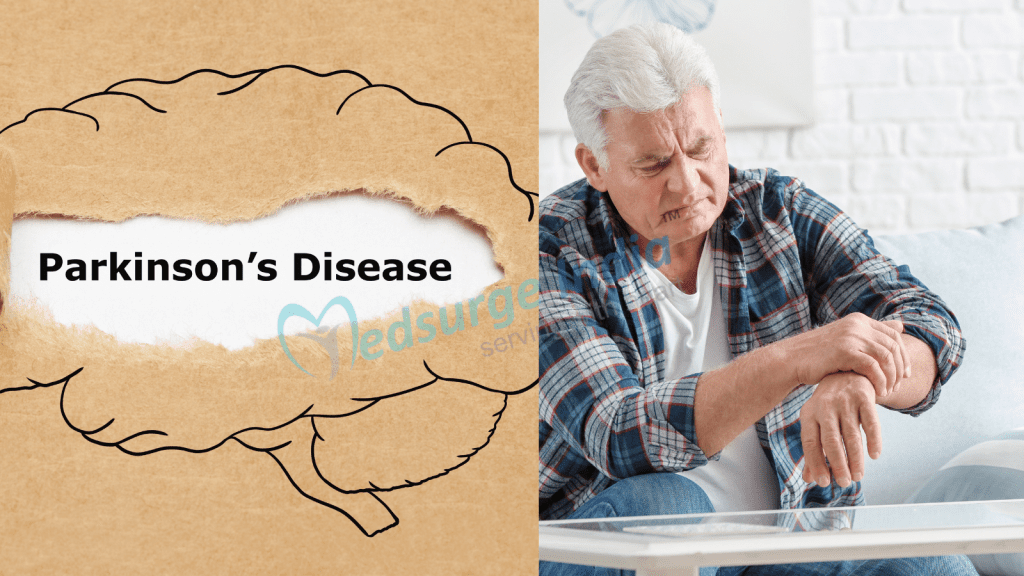
- Parkinson’s Disease Treatment Cost in India depends on the patient’s medical history, overall health, and the type of treatment opted for.
- The cost of deep brain stimulation surgery ranges from 15,000 USD to 27,000 USD.
- The total stay in India is approximately 25-40 days.
What is Parkinson’s Disease?
Parkinson’s disease is a progressive neurodegenerative disorder characterized by involuntary movements. An individual does not realize its impact in the beginning, but slowly it starts affecting the whole body. It mostly hits people above 60 years of age.
How to Test Yourself for Parkinson’s Disease: Primary and Secondary Symptoms?
Parkinson’s disease begins on one side of the body and initially, symptoms are mild. Afterward, involuntary and voluntary functions of the limb start to be affected. By the time the individual starts releasing primary symptoms of Parkinson’s disease, it might have already affected 60-80% of brain functionalities. Following are enlisted some of the primary symptoms of the disease:
- Tremors: Tremors start in major parts of the body including the head, fingers, hands, fingers or jaw. These tremors occur while the body is resting.
- Stiffness: Stiffness in hands, limbs, and trunk may increase creating problems with involuntary movements. An individual may find it difficult in writing and speaking.
- Postural Tremors: The most common postural tremor is a re-emergent tremor that re-emerges after a finite period while maintaining posture. It occurs in about two-thirds of the patients and is suggested to be an extended version of a resting tremor.
- Parkinsonian gait: This symptom signifies that a person has Parkinson’s Disease. An individual usually takes small, shuffling steps and faces problems picking up their feet.
Loss of muscle control and continuous damage to the brain functionality lead to secondary symptoms and they are:
- Dementia
- Depression
- Anxiety
- Smell dysfunction
- Fluctuation in blood pressure levels
- Fatigue
- Urinary incontinence
- Stress
Some of the additional problems that an individual may experience and are symptoms of Parkinson’s disease:
- Cognitive problems and thinking difficulties including dementia
- Eating, chewing, and swallowing problems
- Depression, stress, and emotional changes
- Bladder problems
- Sleep problems/disorders
- Constipation
If you or any of your close ones experience any of the above-mentioned symptoms, consult a well-experienced neurologist immediately.
What Are the Possible Causes of Parkinson’s Disease?
When there is a loss of certain nerve cells (neurons) in the brain leading to a reduction in the production of a chemical messenger called dopamine, symptoms of Parkinson’s disease arise and hence, other impaired movements.
The exact cause of the disease is still not clear, however, some causes are responsible for its existence. They are:
- Genes: Researchers have found specific genetic mutations responsible for causing Parkinson’s disease. This happens in rare cases. However, certain variations in genes could increase the risk of this disease.
- Environmental Factors: Exposure to certain environmental toxins may trigger the risk of Parkinson’s disease. However, the risk is comparatively less.
Risk Factors That May Increase The Existence Of Parkinson’s Disease:
- Age: It usually affects people who are 60 years or above. These health problems rarely occur in young adults. It develops in late life and gradually increases with age.
- Heredity: If Parkinson’s disease had hit any of your family members in the past, there are chances you will likely develop this disease.
- Gender: Men are more likely to develop this disease as compared to women.
- Exposure to certain toxins: When an individual is highly exposed to herbicides and pesticides, the chances of developing of Parkinson’s disease increase.
Different Stages of Parkinson’s Disease:
Like other diseases, Parkinson’s disease has different stages with different symptoms as well and they are:
Stages | Symptoms |
| Stage I | Mild symptoms with no interference in daily life activities. |
| Stage II | Affects daily life and an individual takes time to complete tasks. |
| Stage III | Also called mid-stage Parkinson’s disease. Balance difficulties, falls, impaired daily activities are some of the common symptoms. |
| Stage IV | Severe symptoms. An individual needs help in performing daily activities. |
| Stage V | Advanced stage. An individual needs 24*7 help. |
Parkinson’ Disease Treatment cost in India is considered not only the cheapest but also result-oriented, all thanks to some of the best neurologists working round the clock for the betterment of the patients.
Get Free Cost Estimation
Procedure
Parkinson’s Disease: Diagnosis and Tests
No specific test exists to diagnose Parkinson’s disease. A neurologist who specializes in diagnosing neurological disorders diagnoses Parkinson’s disease based on your signs & symptoms, a thorough neurological & physical examination, and medical history.
The doctor may also recommend blood tests to check what’s the main reason for the cause of symptoms.
Apart from this, your doctor may recommend a specific single-photon emission computerized tomography (SPECT) scan called a dopamine transporter scan (DaTscan) and other imaging tests such as MRI, ultrasound, and PET scans. Although, these tests aren’t much help in diagnosing Parkinson’s disease.
Your doctor may suggest regular follow-up appointments to evaluate the symptoms over time to diagnose Parkinson’s disease.
Parkinson’s Disease Treatment: Medications & Treatment Procedures
Parkinson’s disease is incurable, but medications can help manage symptoms. In an aggressive scenario, your doctor may advise surgery.
Your doctor may recommend a healthy lifestyle, advise balance and stretching physical therapy, and may refer to a speech-language pathologist to correct speech problems.
Your doctor may prescribe medications and they include:
- Carbidopa-Levodopa: Levodopa, an effective medication to cure Parkinson’s disease, goes into your brain and is converted into dopamine. Carbidopa protects levodopa from early conversion into dopamine outside your brain. Therefore, this combination is quite effective. There might be some side effects such as nausea or lightheadedness.
- Inhaled Carbidopa-Levodopa: The doctor feeds this medicine through a tube in an emollient form that goes into the small intestine. This medication infusion involves a surgical procedure to place the tube.
- Dopamine Agonists: These drugs don’t convert into dopamine, unlike levodopa. However, these drugs imitate dopamine effects in your brain. They have the same side effects as carbidopa-levodopa. Some additional symptoms are hallucination and compulsive behaviors.
- MAO B Inhibitors: Selegiline (Zelapar), rasagiline (Azilect) and safinamide (Xadago) are the main contents of this medication. It avoids the breakdown of brain dopamine by suppressing the brain enzyme monoamine oxidase B (MAO B). Nausea, insomnia, and headaches are some of its side effects.
- Catechol O-methyltransferase (COMT) inhibitors: Entacapone (Comtan) and opicapone (Ongentys) are the primary medications. It mildly prolongs the effects of levodopa therapy by blocking an enzyme that helps break down dopamine. Like every medicine, it has side effects as well such as involuntary movements (dyskinesia) due to enhanced levodopa therapy.
- Anticholinergics: This medication helps control the tremor effects that arise in Parkinson’s disease. However, the benefits are offset by some side effects such as impaired memory, dry mouth, constipation, impaired urination, confusion, and hallucinations.
- Amantadine: It is effective in early-stage Parkinson’s disease and provides short-term relief. Hallucinations, purple-mottling of the skin, and ankle swelling are some of its side effects.
Deep Brain Stimulation: Awake Surgery For Parkinson’s Disease Patients
Deep Brain Stimulation (DBS) is a neurosurgical procedure that involves implanting electrodes that produce electrical impulses to regulate abnormal impulses. The surgeon places a pacemaker-like device under the skin in the upper chest that controls the amount of stimulation.
Apart from Parkinson’s disease, DBS also treats several neurological conditions like:
- Epilepsy
- Obsessive-compulsive disorder
- Dystonia
- Tremors
- Dementia
- Cluster Headache
- Stroke Recovery
- Multiple Sclerosis
- Traumatic brain injury
Associated Risks with Deep Brain Stimulation Surgery
As DBS is major surgery, it involves creating small holes in the skull to implant the electrodes and device with batteries in the chest. Therefore, it comes with a bunch of risks and complications. They are:
- Onset of seizures
- Bleeding in the brain
- Misplacement of lead
- Nausea
- Heart problems
- Stroke
- Infection
This surgery won’t treat your disease completely, it may help relieve pain symptoms. Although the symptoms won’t go away completely, medications may still be required to treat some conditions.
DBS isn’t a solution for everyone. Therefore, it is important to discuss with your doctor about life post-surgery.
Fighting Parkinson’s Disease With Lifestyle Changes
After diagnosis, make certain changes in your lifestyle to manage Parkinson’s disease easier.
- Healthy Eating: Intake of foods high in fiber and drink plenty of water to prevent constipation, a common problem in Parkinson’s disease. A balanced diet full of omega-3 fatty acids has proven to be beneficial as well.
- Exercise: Exercising increases your muscle strength, balance and reduces depression and anxiety. However, precautions need to be taken while exercising and should be done under your trainer’s supervision.
- Avoiding Falls: Parkinson’s disease has balance difficulties as one of its symptoms. In later stages, an individual becomes prone to fall off easily even by a small push. Therefore, an individual must avoid carrying stuff while walking, making a U-turn, or walking backward direction.
Consult an occupational therapist to make your life simpler and easier.
Which Specialists Treat Parkinson’s Disease?
Parkinson’s disease is a complicated health condition that requires a skilled team of specialists to work together to ensure a quality of life. They are:
- Neurologists
- Neurosurgeons
- Physical Medicine
- Rehabilitation
- Occupational Therapists
- Counselors
Factors That Affect The Cost Of Parkinson’s Disease Treatment
Certain factors are responsible that may affect Parkinson’s Disease treatment costs in India:
- Type of hospital: super-specialty, multi-specialty, single-specialty
- Type of rooms: deluxe room, standard room, general room, single room, shared room, etc.
- Specialists fees
- Tests and diagnostic procedures including imaging tests
- Cost of surgery if required
- Medications
- Follow-up visits
- Cost of physical therapy
Why India for Parkinson’s Disease Treatment
India has several JCI (Joint Commission International) accredited hospitals that are well-known for their state-of-the-art infrastructure, highly skilled medical professionals and well-trained nursing staff. These medical services provide affordable healthcare services to patients across the globe.
Medsurge India is a reputed and trusted health assistance partner that provides services in all major cities in the country. They have tie-ups with multiple super-specialty and multi-specialty hospitals across the country. MedSurge team makes sure that the patients get the best of healthcare.
The Most Important Frequently Asked Questions
How Much Does Parkinson’s Disease Treatment Cost in India?
The cost of Parkinson’s disease treatment in India varies from 7000-9900 USD considering the number of travelers, type of treatment opted, total stay in India and more.
How Much Does Deep Brain Stimulation Cost in India?
The cost of deep brain stimulation surgery in India is around 15,000-27,000 USD.
What Foods Should Parkinson’s Patients Avoid?
Processed foods including canned fruits & vegetables, dairy products, low-fat milk, foods high in cholesterol, and saturated fat should be completely avoided.
What Worsens Parkinson’s Disease?
Stress and anxiety. Tremors worsen when a person is under stress or anxiety. All symptoms of Parkinson’s disease particularly tremors become less responsive to medications when the disease reaches stage II.
When Do the Results Become Visible Once the Treatment Begins?
It varies from person to person. However, the condition starts improving within one to three months. In some cases, patients take around nine months for improvement in their health condition.
What Factors Are Responsible for Causing Parkinson’s Disease?
Exposure to environmental toxins, age, gender, genetics, traumatic head injury, active or passive smoking, medications, and other drugs maybe some of the factors responsible for the cause of Parkinson’s disease.
What Is the Best Treatment for Parkinson’s Disease?
A medication called levodopa is quite effective for Parkinson’s patients which is absorbed by the nerve cells (neurons) in your brain and converted into dopamine that transmits messages between parts of the brain and nerves responsible for control movements.
What Documents Do I Need to Carry While Traveling for Medical Treatment to India?
You need to carry all updated medical reports including blood reports, health problems, prescriptions, and tests reports. The doctor’s contacts must be there as well.
What Are the Legal Requirements for a Medical Visa to India?
You need to carry a valid passport and visa mentioning medical treatment from a recognized hospital in India. Two blood relatives can join along under separate attendant visas
Top Hospitals for Parkinson’s Disease Treatment In India
Top Doctors for Neurology And Neurosurgery
Dr. Rohit Bansil
Associate Director
Experience: 14 years of experience
BLK Super Speciality Hospital, New Delhi
New Delhi, India
Dr. A.K. Sahani
Senior Consultant
Experience: 17 years of experience
Indian Spinal Injuries Center, New Delhi
New Delhi, India
Dr. Man Mohan Mehndiratta
Director
Experience: 41 years of experience
BLK Super Speciality Hospital, New Delhi
New Delhi, India
Dr. Sanjay Kumar Chaudhary
Senior Consultant
Experience: 22 Years
IBS Institute of Brain and Spine, New Delhi
New Delhi, India
Dr. Sitansu Sekhar Nandi
Consultant
Experience: 23 years of experience
AMRI Hospital, Kolkata (Dhakuria)
Kolkata, India
Dr. Mahesh Sambhare
Consultant
Experience: 18 years of experience
Fortis Hiranandani Hospital, Vashi
Mumbai, India
Dr. Prasad Chaudhari
Consultant
Experience: 14 years of experience
Apollo Spectra Hospital, Chembur
Mumbai, India
Dr. Anirban Deep Banerjee
Associate Director
Experience: 22 years of experience
Medanta – The Medicity, Gurgaon
Gurgaon, India
Dr. Human Prasad Sinha
Senior Consultant
Experience: 16+ years of experience
NH MMI Narayana Superspeciality Hospital, Lalpur, Raipur
Raipur, India
Dr. Atul Prasad
Director , MBBS, DM
Experience: 30 years of experience
BLK Super Speciality Hospital, New Delhi
New Delhi, India
Dr. Satyen Mehta
Consultant
Experience: 17 years of experience
Fortis Hospital, Mulund, Mumbai
Mumbai, India
Dr. Usha Mallinath
Consultant
Experience: 20 years of experience
Manipal hospitals Life’s On, Whitefield
Bangalore, India
Dr. Dinakar. A
Consultant
Experience: 27 years of experience
KIMS Sunshine Hospitals, Begumpet
Hyderabad, India
Dr. Arun Saroha
Head of Department , MBBS, MS, MCh
Experience: 20 years of experience
Max Super Specialty Hospital, Gurgaon
Gurgaon, India

